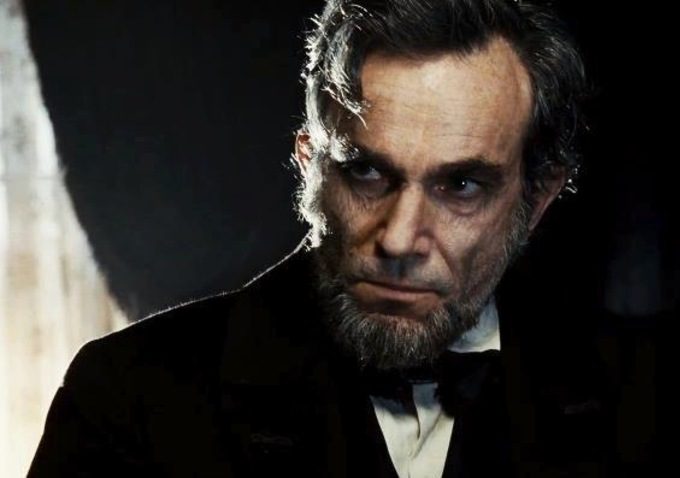My Blog List
Popular Posts
-
Two years on, who would have thought Christopher Nolan still had more to prove. The Dark Knight was a huge artistic and financial success, a...
-
'Those people are our neighbours.' This episode is one of the most terrifying ever written for the Twilight Zone - and there isn...
-
With each rewatch the weak special effects are not any less jarring, but this is still a bold, relentlessly bleak horror where the real ...
-
A favourite among many TZ aficionados, Nightmare at 20,000 Feet is memorable for starring a young William Shatner, and being one of the mos...
-
Drive is a wonderfully minimalist title, and one which not only describes, but encapsulates the very existence of Ryan Gosling's vacan...
-
A documentary based on the massacres of Sabra and Shatila during the Lebanese war, Waltz with Bashir is a powerful, unique example of cine...
-
I'm so glad my prejudice against Guy Ritchie gets to stay intact, because this is surely one of the worst films I've ever seen...
-
From celebrated director Guillermo del Toro and co-author Chuck Hogan comes The Strain, a modern day take on the vampire myth that combines ...
-
To open up my Twilight Zone marathon, a familiar parable about a genie in a lamp. Arthur Castle is a pawnbroker struggling to pay the ...
-
I thought this was an excellent, superbly crafted thriller with a strong ensemble of performances and a really fascinating attempt to s...
Total Pageviews
Sunday, 3 February 2013
Lincoln
To portray an historical figure as hallowed and significant as the 16th President of America, Abraham Lincoln, would seem to be the most monumental of all Presidential biopics. To bring to life the greatest symbol of American democracy is a daunting feat, even for a director as accomplished in historical film-making as Steven Spielberg. But when Daniel Day Lewis is your President Lincoln, you can be assured that the President will be monumental even if the film is not. Lincoln is masterful on both counts - a magnificent performance and painstaking, sensitive film-making in perfect compliment to each other.
Lincoln takes as its crux in Lincoln's life and Presidency the pivotal crisis over the drive to pass the 13th amendment at a critical juncture in the American Civil War. Persevering with the 13th Amendment was seen as both a suicidal political gamble and dangerous to the war effort among Lincoln's fellow Republicans, but through a combination of indefatigable political will and cunning machinations in Congress, Lincoln remarkably secured the votes from the opposing Democrat party to pass the Amendment and demonstrate political bipartisanship - a glaring phenomenon in today's American Congress. The film follows the various stresses on Lincoln's life and the extreme measures necessary to secure one of the most groundbreaking democratic principles in the US Constitution, brilliantly conveying the level of sacrifice Lincoln endured for the future of a nation. Spielberg captures the magnitude of the man magnificently, filming Day Lewis' Lincoln from angles accentuating the symbolic stature of a man who was also physically statuesque, at times observing him in unmoving silhouette, at other times close up on his face to recreate the intimacy of persuasion Lincoln encouraged in his listeners. Scenes are pervaded with an air of history about them through wonderful lighting and shot composition and although not as visually striking as Spielberg's other works it matches perfectly to both the grandeur of Congress and the couched politicking going on behind the scenes.
There is dryness at times and the film moves at a deliberate, ponderous pace, but whenever Daniel Day Lewis is on screen it's impossible to take your eyes off his absolutely marvelous imagination of the silver tongued, powerfully willed Lincoln. Every word counts when it falls from his mouth, whether he is casually sharing an anecdote with the soldiers fighting for him or thunderously commanding his congressmen to secure the necessary democratic votes, he is at once the father of American politics, the avuncular storyteller and brother to the common man - simply put Day Lewis is indescribably brilliant in the role. He's also backed by an outstanding cast. Tommy Lee Jones is fantastically entertaining as the sparring anti-slavery politician Thaddeus Stevens, his blustery, vehement eloquence an antithesis to the softer but no less inspiring gravitas of Lincoln's rhetoric, and whose reaction to the passing of the 13th amendment is a wonderfully nuanced moment in the film. Forced to restrain his fiery attacks on slavery, Stevens' political compromise was an example of the sacrifice men endured to eradicate the great evil of human subjugation. Sally Fields and Joseph Gordon Levitt are strong respectively as Lincoln's wife and son, and despite carrying the burden of playing the more melodramatic side of the film, act to convey the stress and strain on Lincoln's domestic life as he struggles with his wife's mental struggles and his son's headstrong determination to enlist in the war effort.
Lincoln is an important film, in addition to being another landmark in Spielberg's considerable oeuvre of cinema. It is a memorial to the will of men who saw injustice and were willing to do whatever was necessary to ensure that all men are born equal, and should inspire people to do the same in the present day. Atop it all is a towering performance by Daniel Day Lewis as both man and symbol, the embodiment of American history. Sure, the success of Lincoln at Oscar will be drawn up to national pride, but when the performance is that good, who is to argue with the man who has played a President?
Labels:
Daniel Day Lewis,
Film,
Joseph Gordon Levitt,
Lincoln,
Oscar,
Steven Spielberg
Subscribe to:
Posts (Atom)







